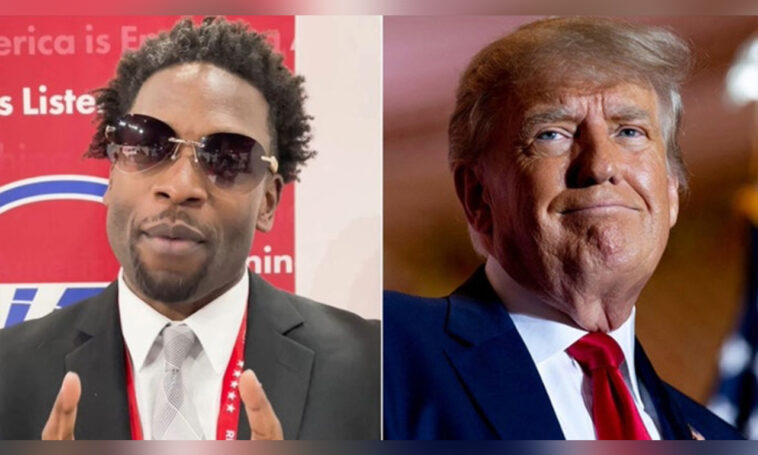Pastor Lorenzo Sewell criticizes ‘identity politics’ as Kamala Harris becomes Dems nominee. Detroit pastor criticizes ‘identity politics’ as Kamala Harris becomes the presumptive Democratic nominee. He argues that focusing on identity over policy undermines the political process and meaningful change.
Pastor Lorenzo Sewell, a prominent figure in Detroit’s religious community, has recently expressed his concerns about the ongoing emphasis on identity politics, particularly in light of Vice President Kamala Harris becoming the presumptive Democratic presidential nominee.
During a speech at the Republican National Convention last week, Sewell stated, “We need to stop playing identity politics,” emphasizing that while the potential of having the first Black woman president is significant, the focus should instead be on policies and qualifications.
“When we look at our community, we see clearly that our community is hurting and it’s been under Democratic leadership,” Sewell said.
Sewell has not publicly endorsed any candidate for the 2024 presidential election, despite having hosted former President Donald Trump at his church in June. He has been a vocal critic of Democratic leadership within the Black community, arguing that their policies have not adequately addressed the needs and concerns of Black Americans. Sewell’s remarks come at a time when a noticeable shift is occurring, with a growing number of Black men showing support for the Republican Party.
This shift is exemplified by individuals like Tayson Stewart, who believes that Trump is making genuine efforts to assist the Black community. “I’ve seen the changes he’s trying to bring,” Stewart said. “It’s about more than just promises; it’s about action.” Conversely, figures like Leon Crosby express deep concern about the prospect of Trump returning to office. “The thought of another four years under Trump terrifies me,” Crosby remarked. “His policies and rhetoric have been harmful to our community.”
The latest NPR/PBS News/Marist Poll reflects the division within the electorate, showing Trump leading Harris by a narrow margin of 46% to 45% among registered voters. This slim lead underscores the contentious nature of the race and the varied perspectives within the Black community. Harris, despite her historic nomination, faces significant scrutiny regarding her qualifications to serve as commander in chief. Critics, including Tennessee Republican Representative Tim Burchett, have derided her as a “DEI hire,” questioning her record and capabilities.
Sewell’s comments highlight the complex and nuanced views that exist within the Black community. While the historical significance of Harris’ nomination is undeniable, there is a growing sentiment that policy and qualifications should take precedence over identity. This perspective is not isolated; it resonates with many who feel that substantive changes in policy are paramount for progress.
The debate over identity politics versus policy-focused leadership is not new, but it has taken on renewed urgency in the current political climate. Sewell’s call to move beyond identity politics is a reflection of broader frustrations with symbolic gestures that do not translate into tangible benefits for the community. “We need leaders who are going to deliver real results,” Sewell asserted. “It’s not enough to break barriers if those barriers are not leading to meaningful change.”
This ongoing discussion is set against a backdrop of increasing political engagement among Black voters, who are critically evaluating the platforms and track records of both parties. For many, the appeal of the Republican Party lies in its promises of economic opportunity and conservative values. However, this shift is met with resistance from those who view the Democratic Party as a more reliable advocate for civil rights and social justice.




Join the Community and Be a Part of the Conversation
You must be logged in or registered to post a comment.